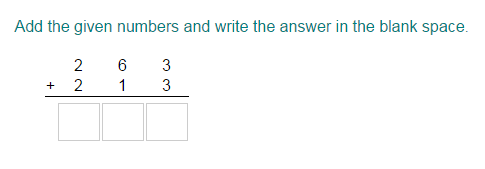Properties of Addition: Missing Numbers
Consider the equation:
(8 + __) + 7 = __ + (5 + 7)
In this equation, two numbers are missing. We can find them using properties of addition. Let's see how.
First, recall all the properties of addition:
Commutative property: When two numbers are added together, the order of addends does not affect the sum or result. For example, 8 + 4 = 4 + 8.
Associative Property: When three or more numbers are added, the grouping of addends does not affect the sum or result. For example, 4 + (3 + 7) = (4 + 3) + 7.
Identity Property: The sum of zero and any other number is the number itself. For example, 5 + 0 = 5.
Now, let's find the missing numbers in the equation: (8 + __) + 7 = __ + (5 + 7)
Notice that three addends are used, 8, 7, and 5.
Now, we know that according to the associative property of addition, changing the grouping of three addends does not change the sum.
a + (b + c) = (a + b) + c, where a, b, and c are any three counting numbers.
So, using associative property on the numbers 8, 7, and 5, we have:
(8 + 5) + 7 = 8 + (5 + 7)
The missing numbers are 5 and 8.
A B C D E F G H I J K L M N O P Q R S T U V W X Y Z
Help
The correct answer is
Remember :
The smallest number is the one that comes first while counting.
Solution :
To arrange the given numbers in order from smallest to greatest, find the smallest number among all the given numbers.
21,27,23
21 is the smallest number.



